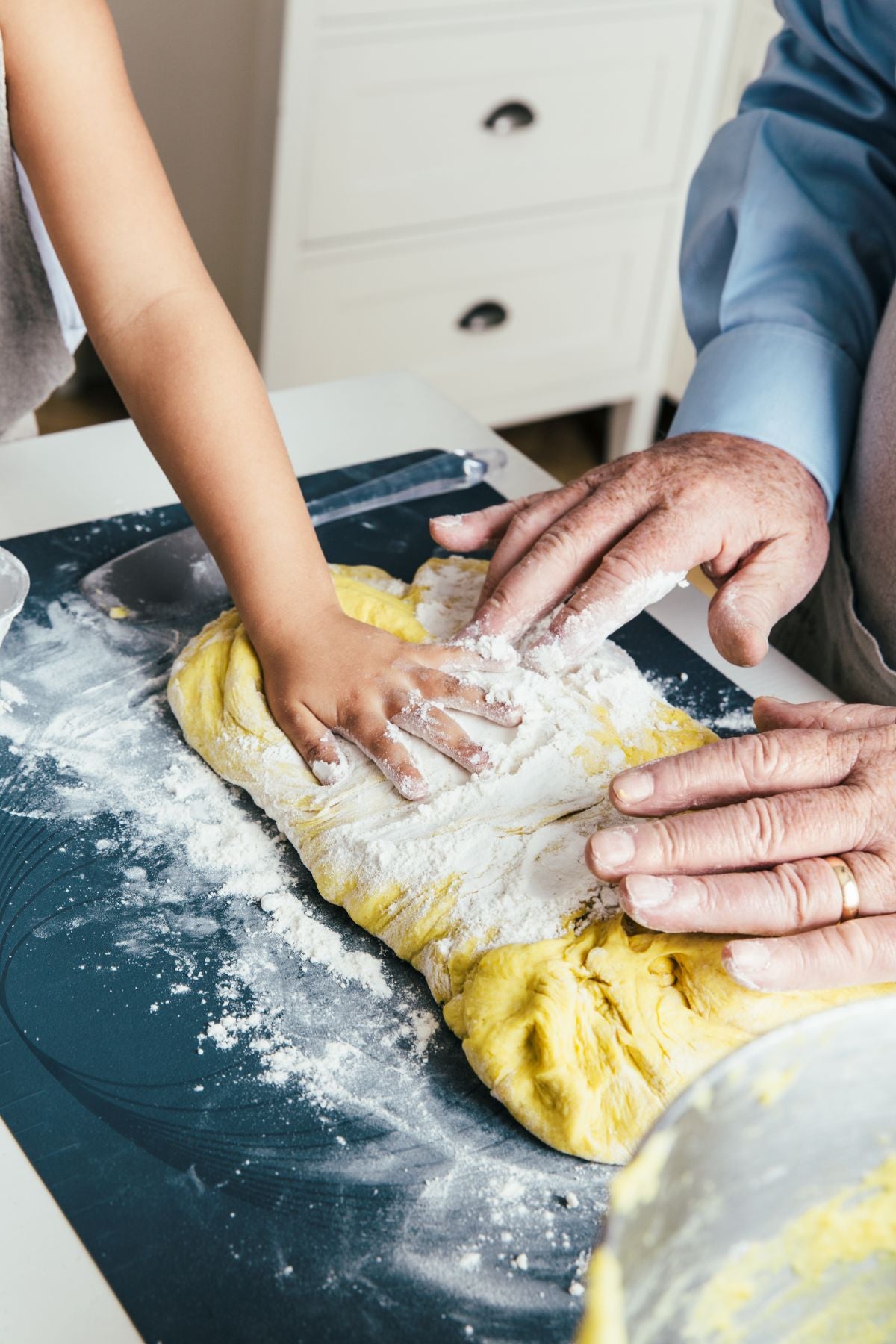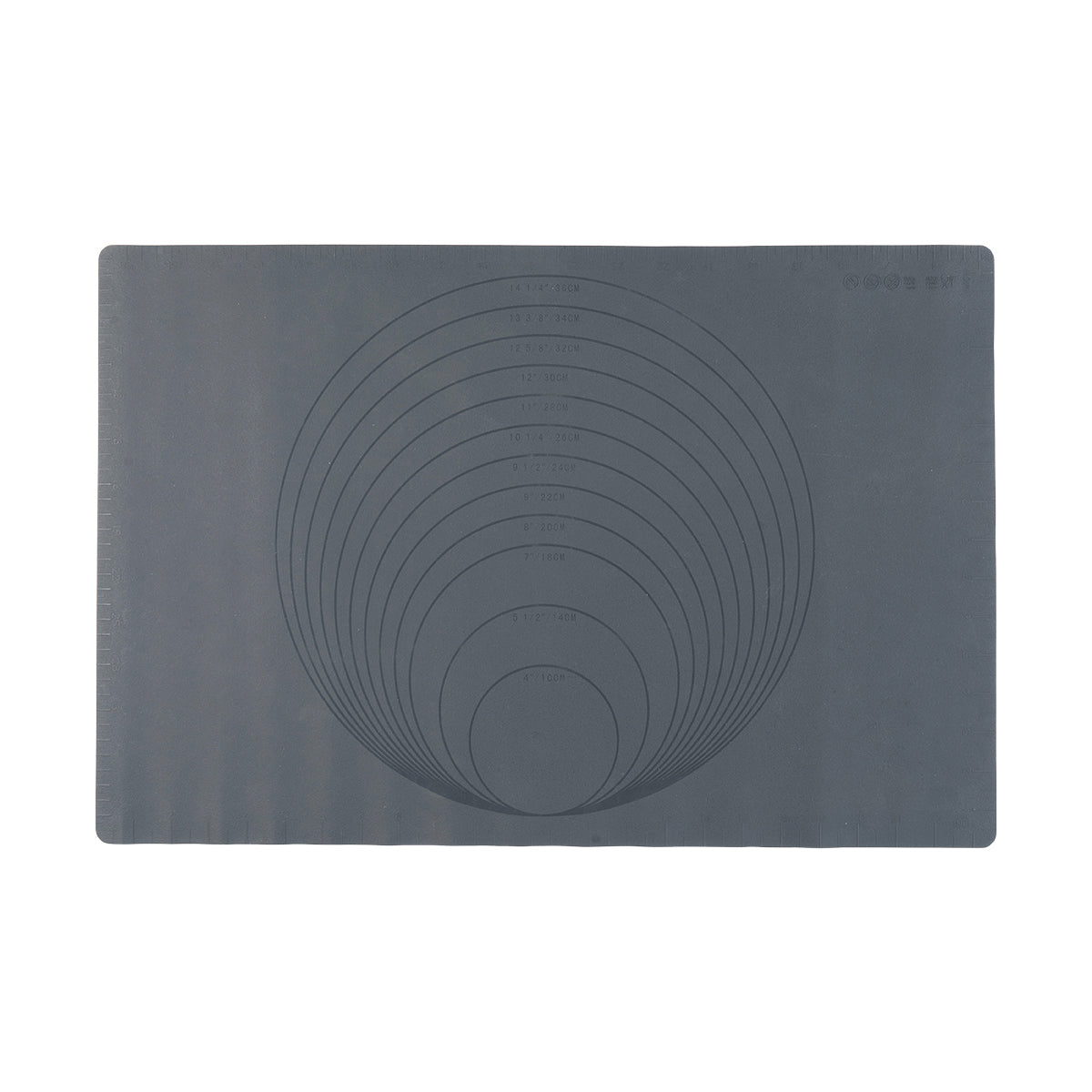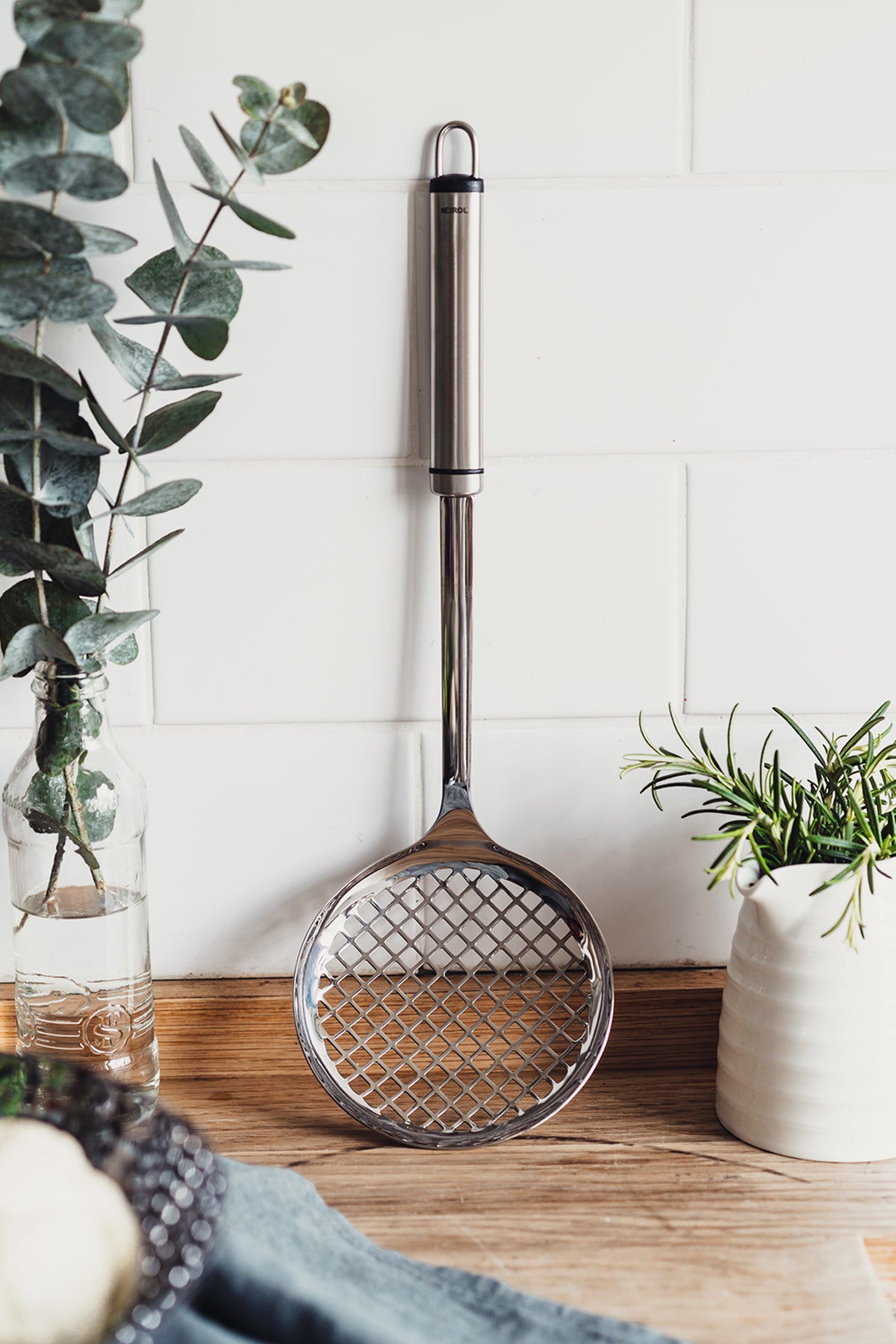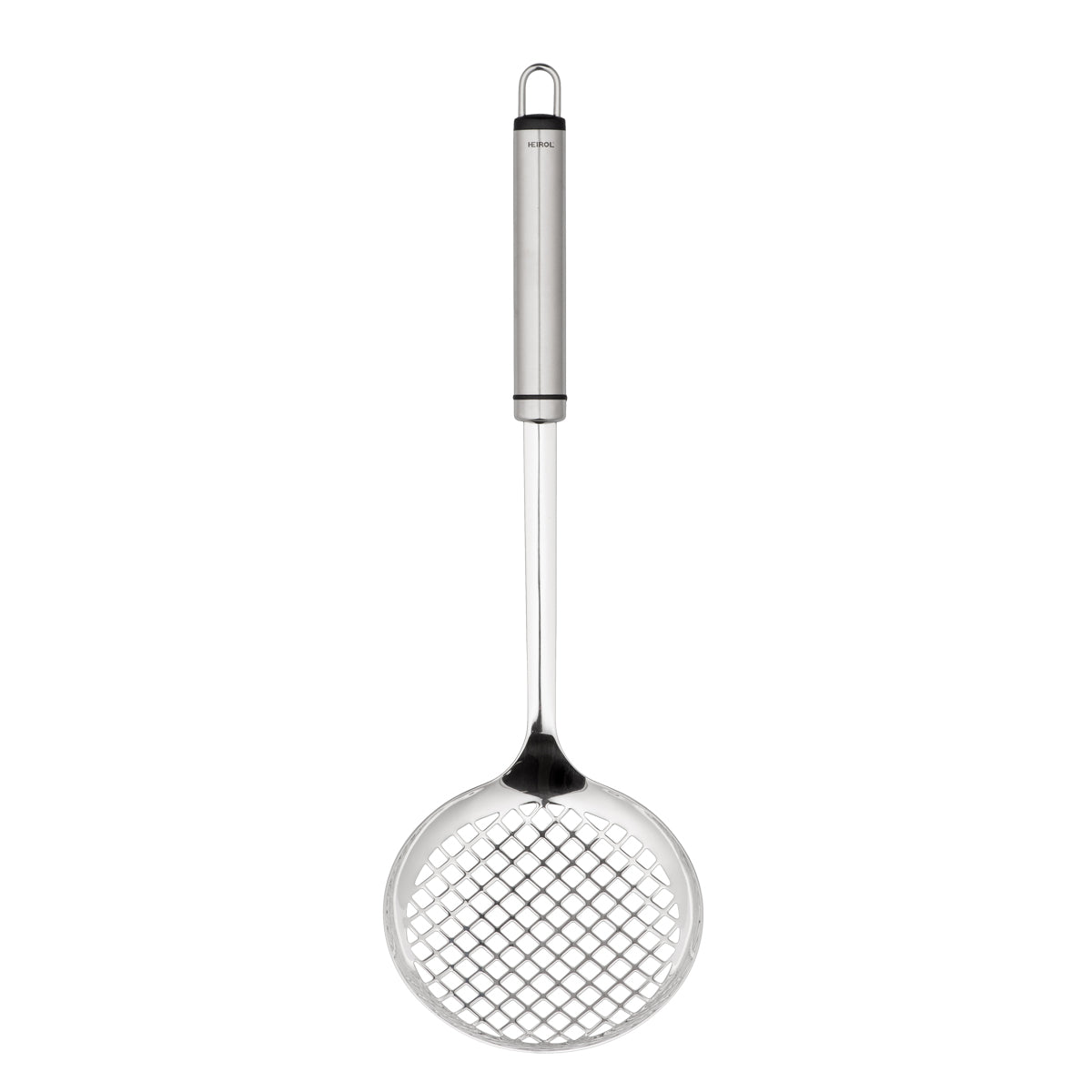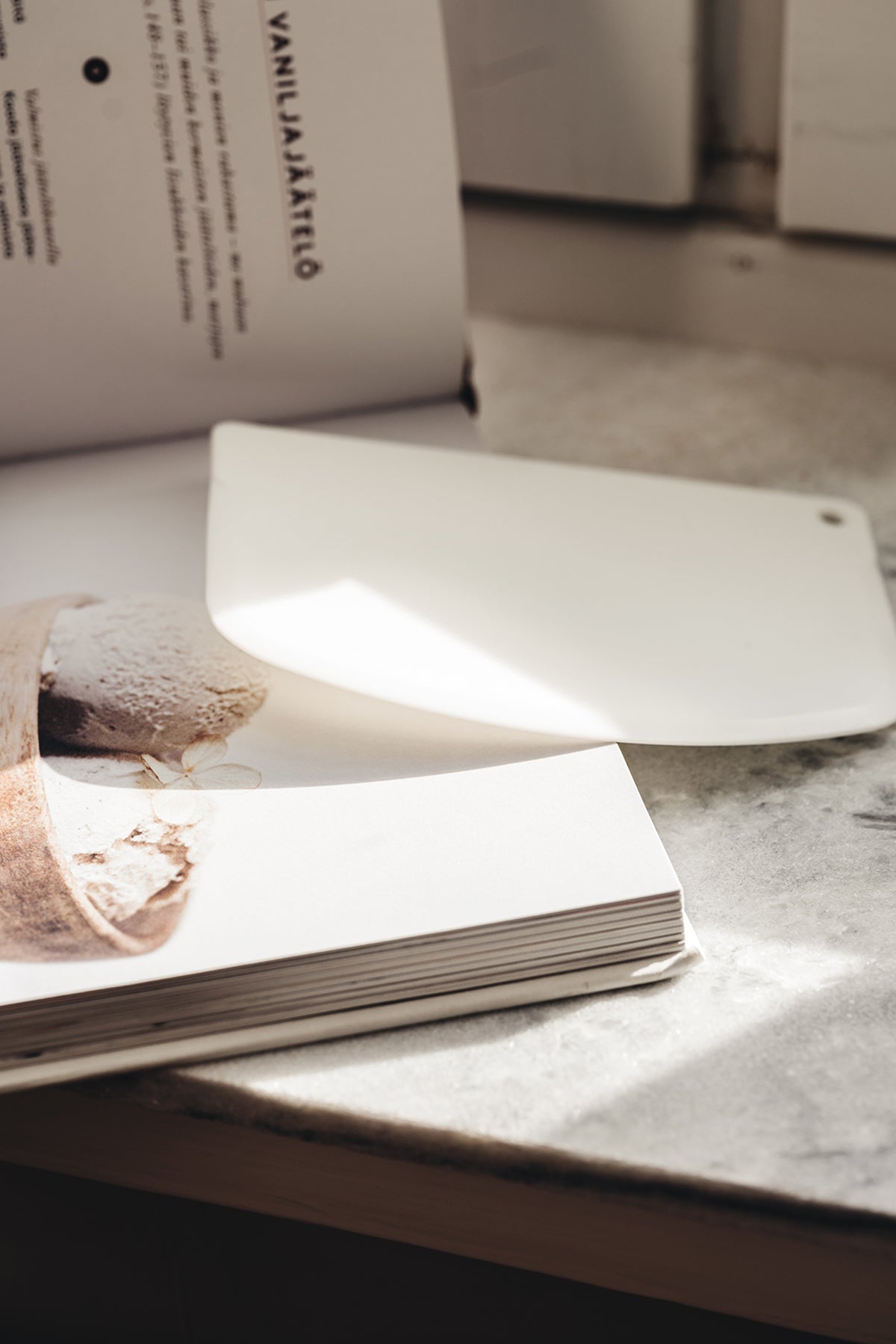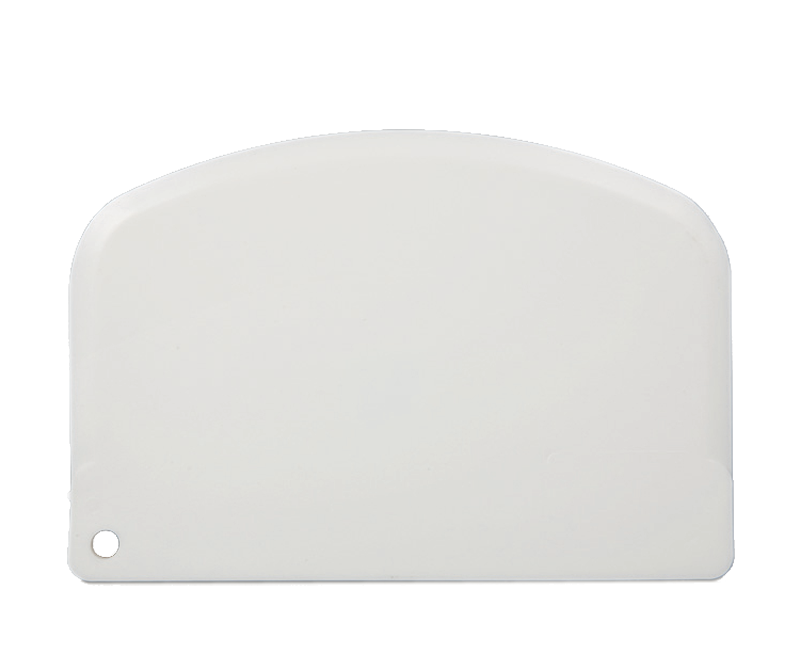


The quietness of the countryside and my grandma taking care of the cows in the barn offered quite the contrast to the busy streets of Rome. I remember her always wearing her scarf on her head and cooking food in the kitchen, and the amazing aroma that filled the whole house. The best memory of all is my grandma’s doughnuts. Crisp on the outside, soft on the inside. I want to share her recipe with you all!
Doughnut recipe
for 18 doughnuts
Tools you’ll need: a bowl, a wooden ladle, a linen cloth, a baking tray/surface, a dough scraper
Ingredients:
2,5 dl milk
25 g yeast
1 dl sugar
2 tsp cardamom
½ tsp salt
1 tsp vanilla sugar
1 egg (not mandatory)
6-6,5 dl flour
50 g soft butter
Instructions:
Heat the milk so it is lukewarm, pour it into a bowl, and soak the yeast in. Add the sugar, cardamom, salt, and egg, and mix properly. Add half of the flour slowly while kneading the dough. Add the butter and the rest of the flour and keep kneading. You can use an electric mixer as well. Place a cloth on top of the bowl and let the dough rise for about 30 minutes.
Drizzle some flour on a flat surface, place the dough on it, and knead so it is smooth. Roll the dough into a stick/bar and cut it into 18 pieces. Roll the pieces into balls and cover them with a cloth for about 45 minutes. Once the balls of dough have risen, use your finger to poke a hole in them, and gently make the hole bigger by rolling them around your finger.
Cooking and finishing touches
You’ll need a big pot, a skimmer, paper towels, and a plate.
1 kg of coconut oil
1 dl of fine sugar
1 tbsp of finely grated orange peel
Heat the coconut oil in the pot to 175-180°C (you can use a digital thermometer to easily measure the temperature). Use a skimmer to place 2-3 doughnuts into the pot and cook them for 1-2 minutes on both sides. The skimmer makes this part a breeze. Take the doughnuts out and place them on a paper towel to cool down.
Place the sugar and orange peel in a bowl/plate, and roll the cooled down (but still warm) doughnuts in the mix on both sides.
TIP!I want to share a tip on cooking grease. Rapeseed oil is probably the most-used cooking grease for doughnuts, but I highly recommend giving coconut oil a go. It is hard, filled with saturated fatty acids, and won’t soak into the dough as much as rapeseed oil. This way the doughnuts come out lighter and you feel better after eating them!
Fresh Spring Mead (Finnish Sima)
Celebrate the arrival of Spring by preparing Finnish sima! A traditional Finnish drink commonly prepared for May Day to welcome Spring. It’s easy and quick to make and tastes like a yeasty lemon soda with a hint of caramel.
Traditional mead arrived in Finland in the 1500s as a full-strength, honey-based alcoholic beverage. Two hundred years later, spring mead (Finnish sima) was developed as a lighter, less alcoholic beverage, made with sugar, yeast, lemons, and raisins. We’ve added a bit of ginger to our sima recipe, to give it a peppery and sweet kick!
You’ll need a pot, a big bowl, a knife, a cutting board, a wooden ladle, a funnel, and capped bottles
2 liters of water
2-3 lemons (depending on the size)
50 g of fresh ginger
150 g of sugar
150 g brown sugar
1 pea-sized piece of yeast
Put 1 liter of water in a pot. Peel the ginger and cut it into slices. Add the ginger to the pot and boil for 10-15 minutes. As the ginger water is boiling, measure the sugar in a heat-resistant bowl. Wash the lemons, peel them gently so that you only peel the yellow part, and place the lemon peel in the bowl with the sugar. Peel or cut off the bitter inner white rind of the lemons and discard. Slice the lemon into 4 slices and add them into the bowl with the sugar and lemon peel. Pour the boiling water into the bowl as well. Add a liter of cold water into the bowl. Once the mix is lukewarm, add the yeast. Stir, cover the bowl with a plastic wrap and let sit at room temp for 24 hours.
The sima has started to ferment once the surface begins to bubble slightly. This is when you should bottle and refrigerate it to slow down the fermentation. After 24 hours, strain the sima and pour it into bottles that have 1 tsp of sugar and 2 raisins on the bottom. Place the bottles in the fridge. Your sima is ready in about 60 days, once the raisins rise to the surface. Sima is good for about a week. Control the sweetness of your sima either by adding or reducing the amount of sugar.
TIP!Sima prepares faster at room temperature, in about 3 days! If you’re going to do this, you should air out the bottles (remove the cap) so the bottles won’t explode swell. If your sima lacks bubbles, the liquid has been too warm when you added the yeast, which has stopped it from working and your sima, unfortunately, won’t be bubbly. I like to prepare it in the fridge, as the taste is fresher!


Sima mocktail
1 large or 2 small cocktails
1 ½ dl of pomegranate/strawberry/raspberry juice
1 ½ dl of sima
Some ice
Mix the ingredients in a glass and enjoy on May Day (or whenever you feel like enjoying a fresh drink)!
The author Cristina Moborg is an Italian-Finnish foodie, co-owner of HEIROL, and mother of four adult children. For Cristina, cooking is a passion and a way to show her unfailing love to her loved ones. Cristina's artistic creativity is also reflected in her cooking - the end result is beautiful even if the journey is sometimes a bit messy. Follow Cristina's kitchen journey on Instagram.
Products used in the recipe
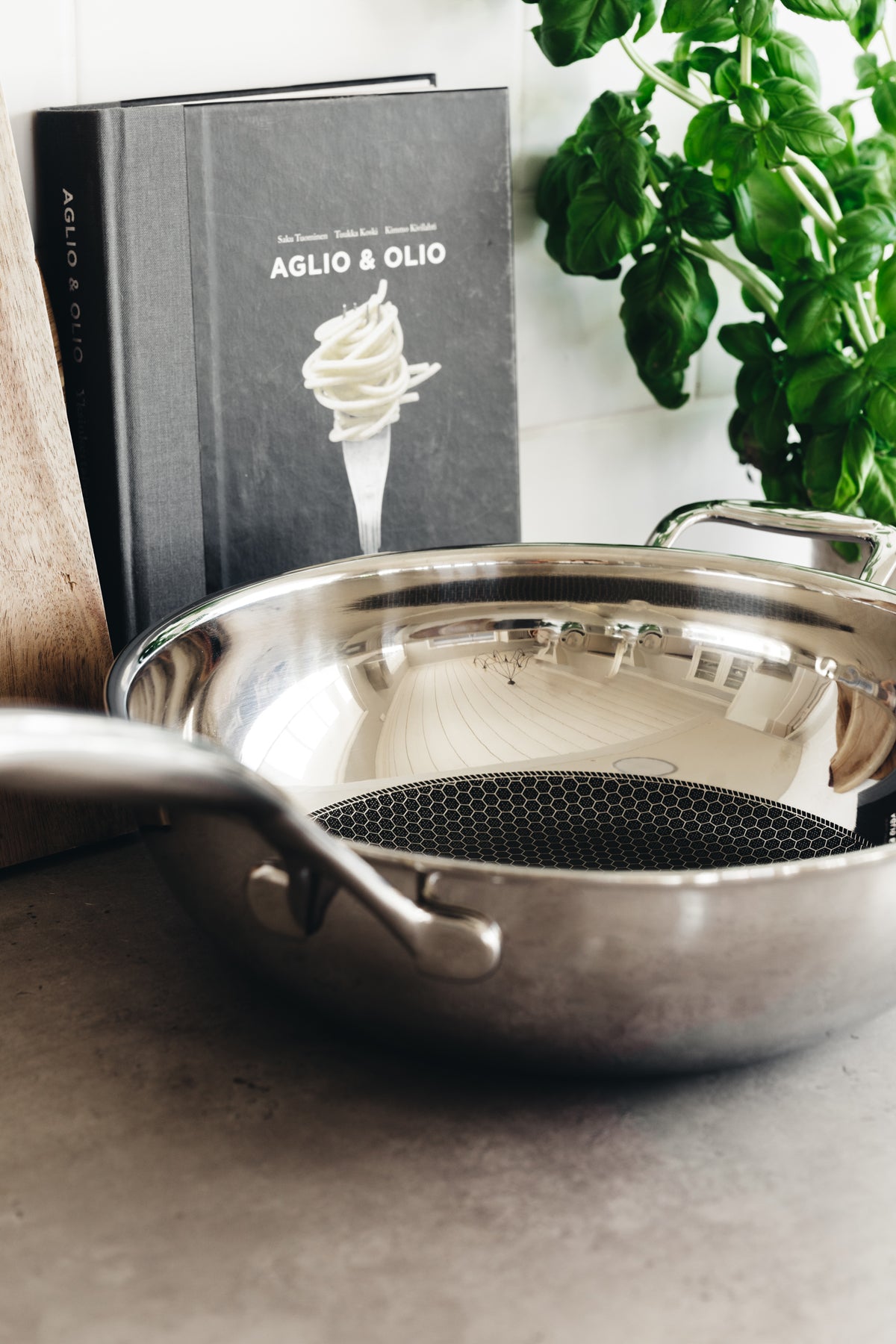
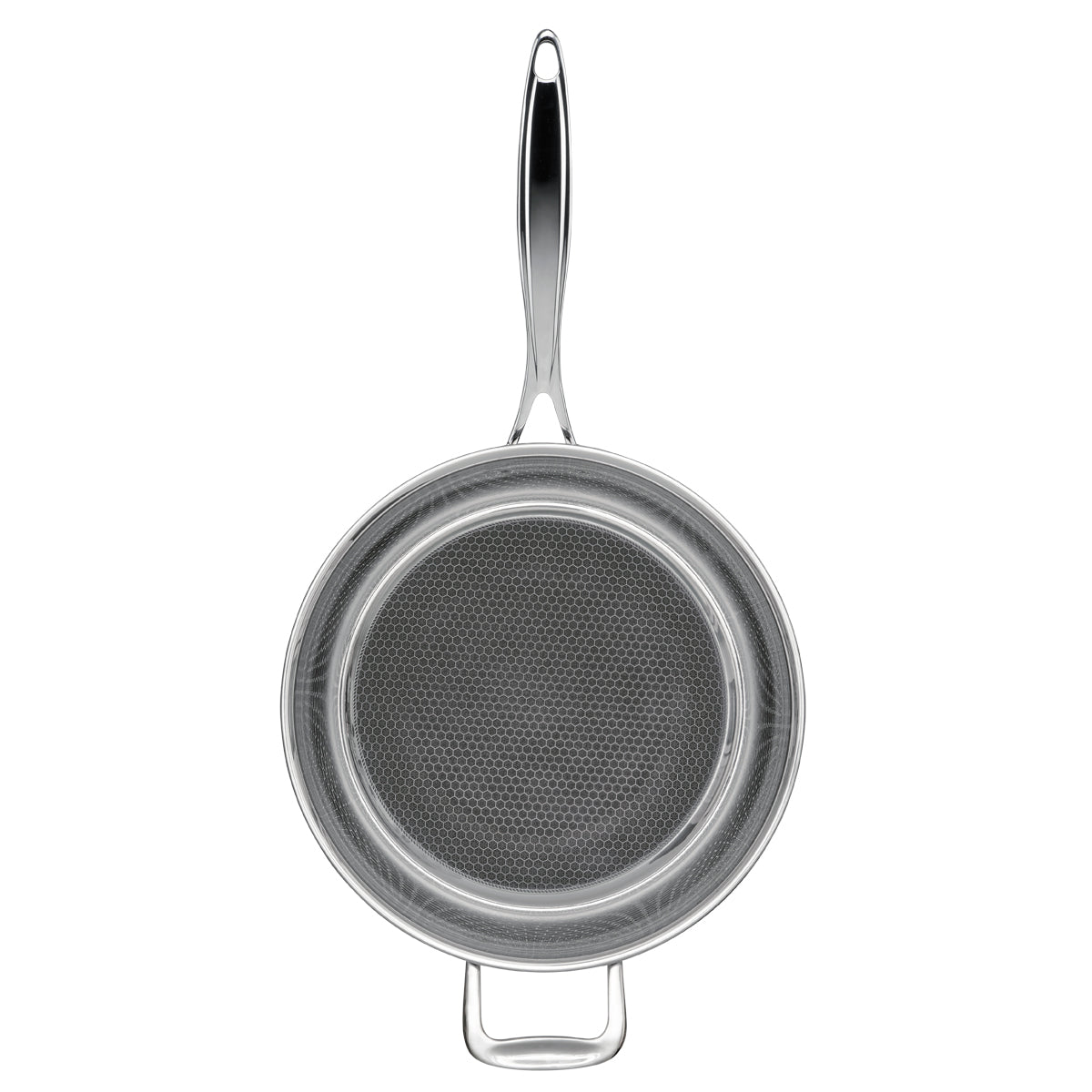
WOK/FRYING PAN 28 cm Steelsafe™ Pro
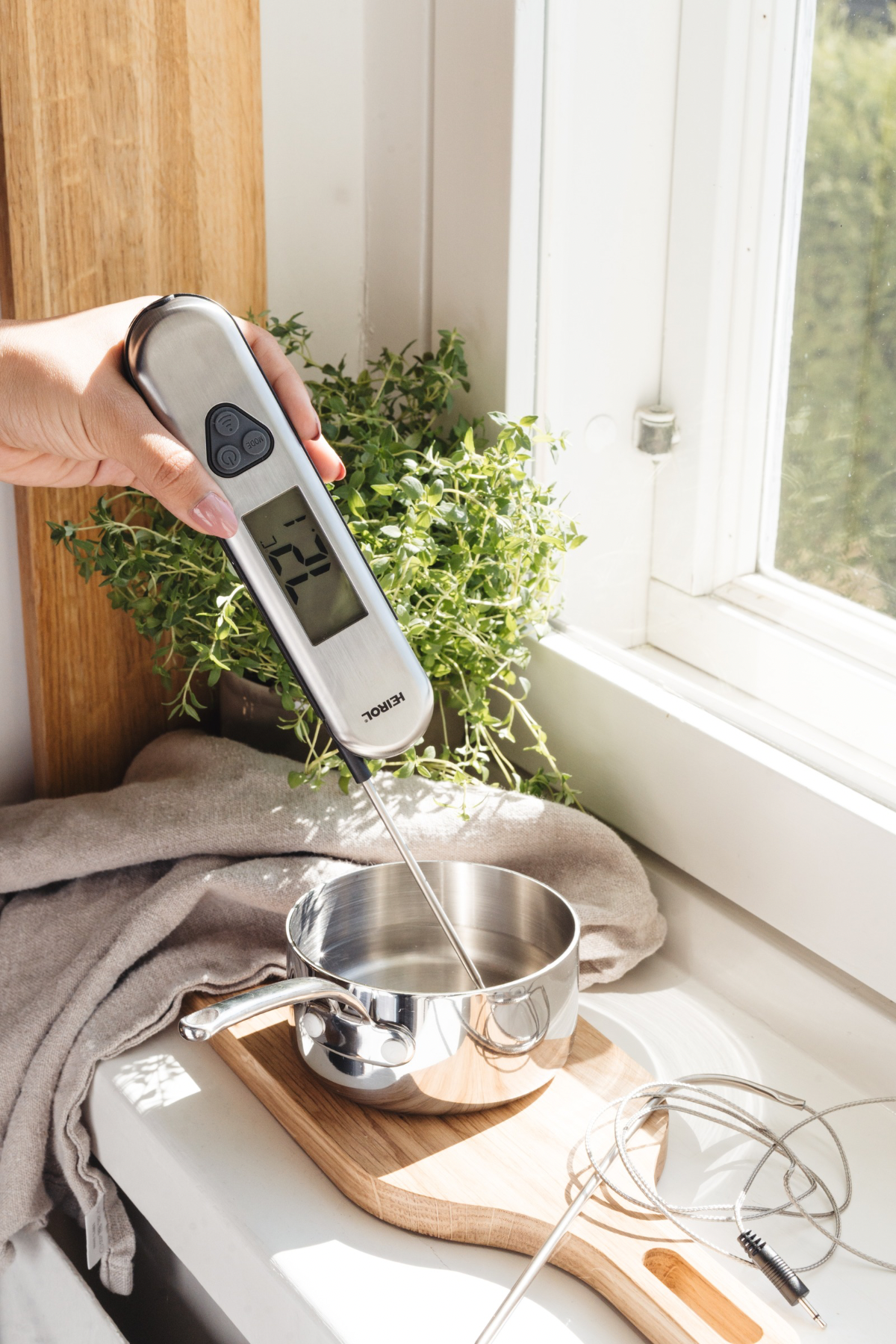
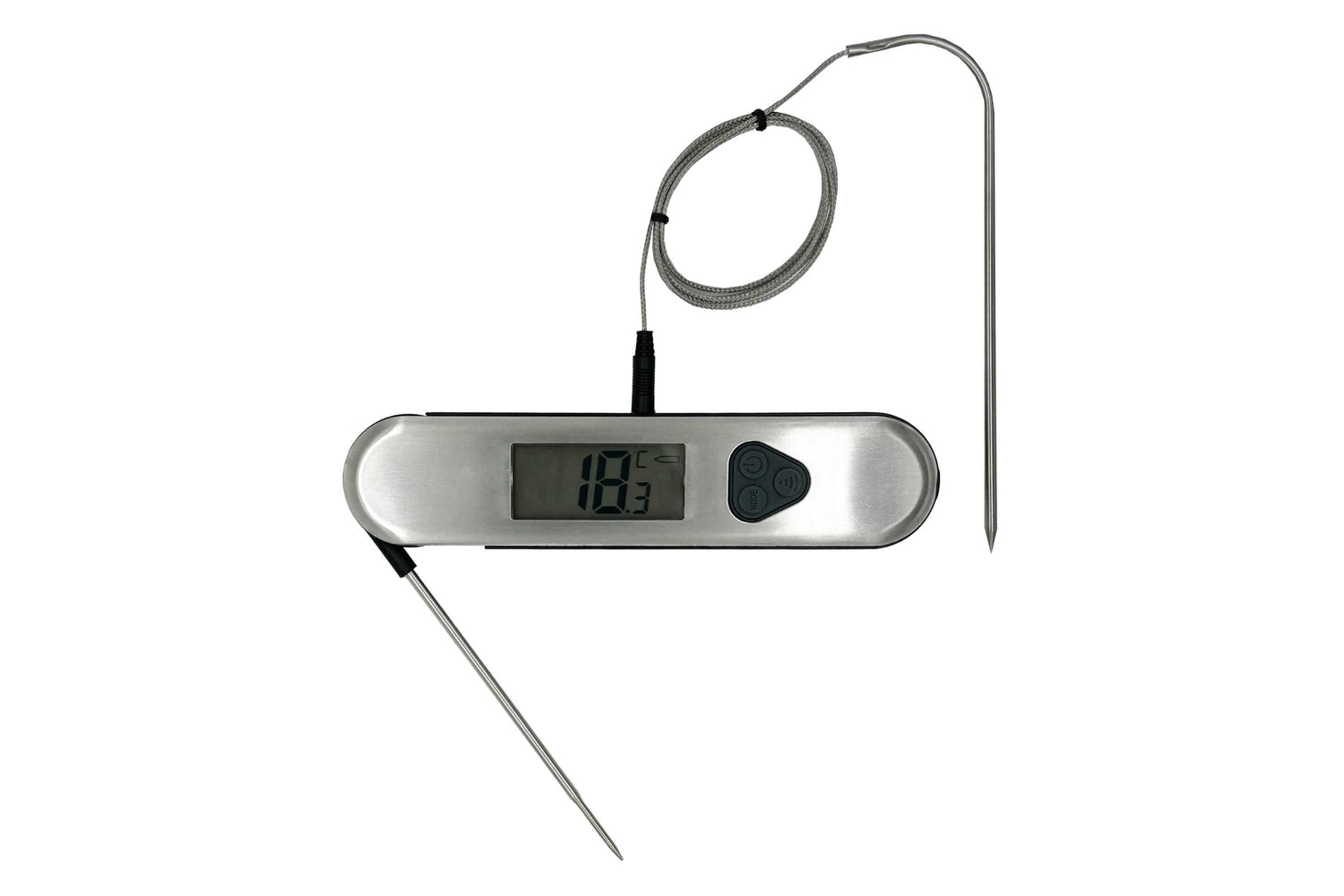
DIGITAL THERMOMETER 17,5 cm, Steely
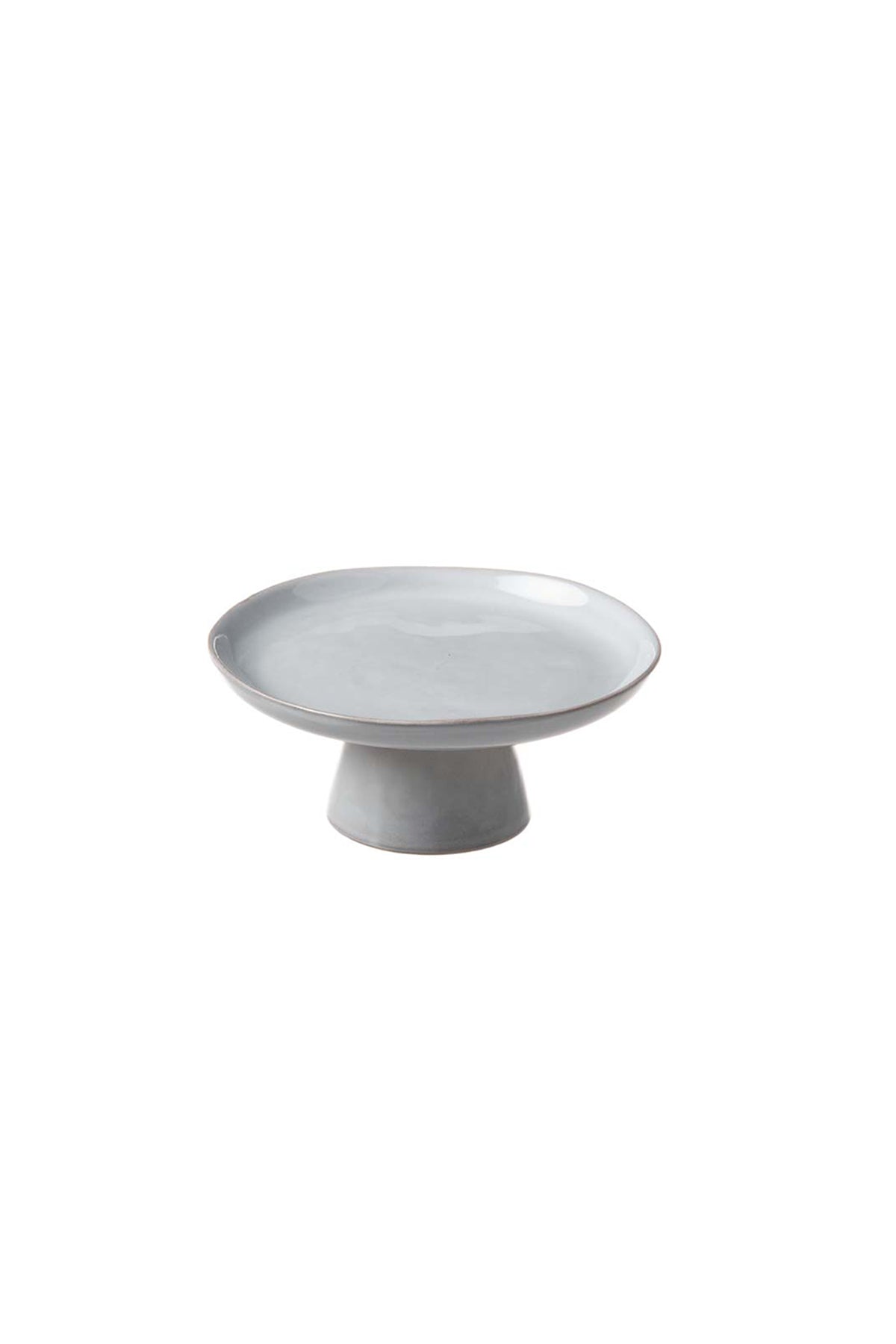
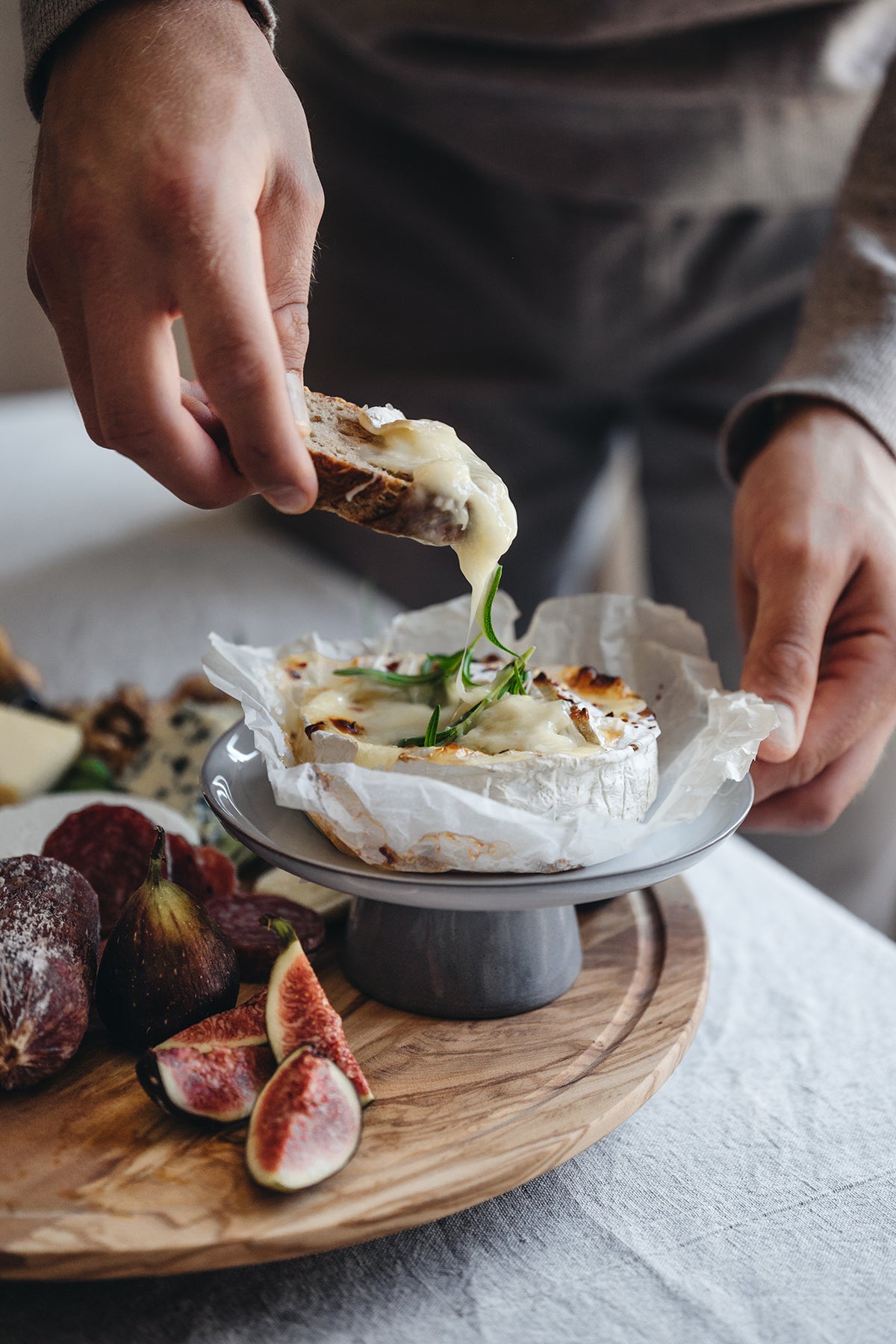
CAKE STAND 17CM SVELTE, STONE
